Candriam Academy’s ESG Talks video series focuses on some of the most pressing economic,
social,
and environmental issues of our time, while offering financial advisors an opportunity to
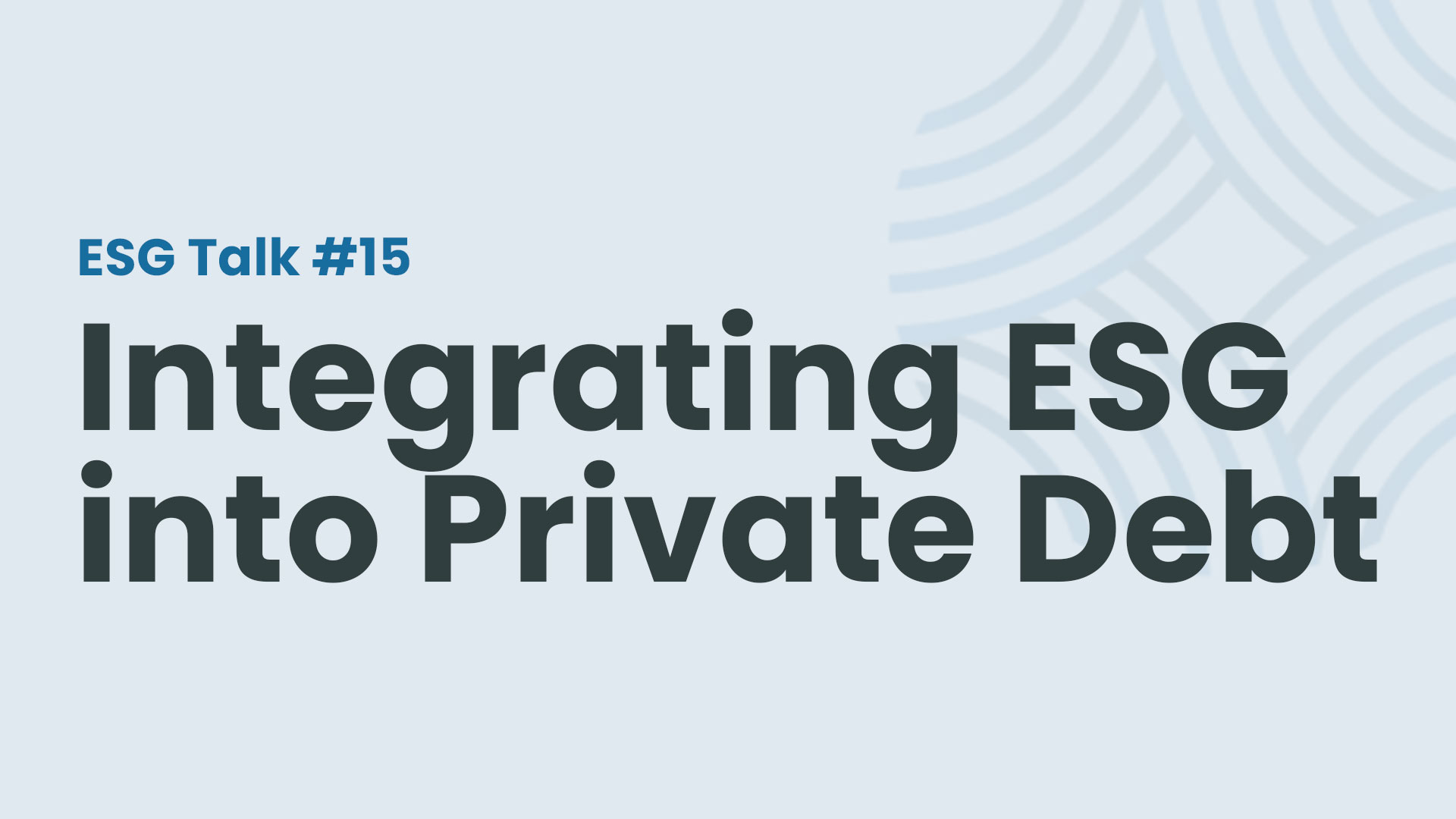
Discover the intricacies of ESG integration in private debt markets in this webinar replay featuring expert insights from Candriam and Kartesia.
The webinar seeks to help you understand the answers to questions, such as: How does it work in practice? How do market players – issuers and lenders – come together on that matter? And what are the prospects for the development of this burgeoning asset class?
Read More...
Join Candriam experts in a compelling webinar that explores the crucial journey towards net-zero emissions. This session goes beyond the final goal of net-zero, focusing on the pathway and its significance in relation to global warming and the Paris Agreement.
Learn the fundamentals of carbon measurement, understand the nuances of Scope 1, 2, and 3 emissions, and discover the critical differences between carbon footprint and carbon intensity. The webinar also addresses the challenges of Scope 3 emissions and the impact of the denominator effect, concluding with the necessity for forward-looking assessments that surpass traditional carbon metrics.
Read More...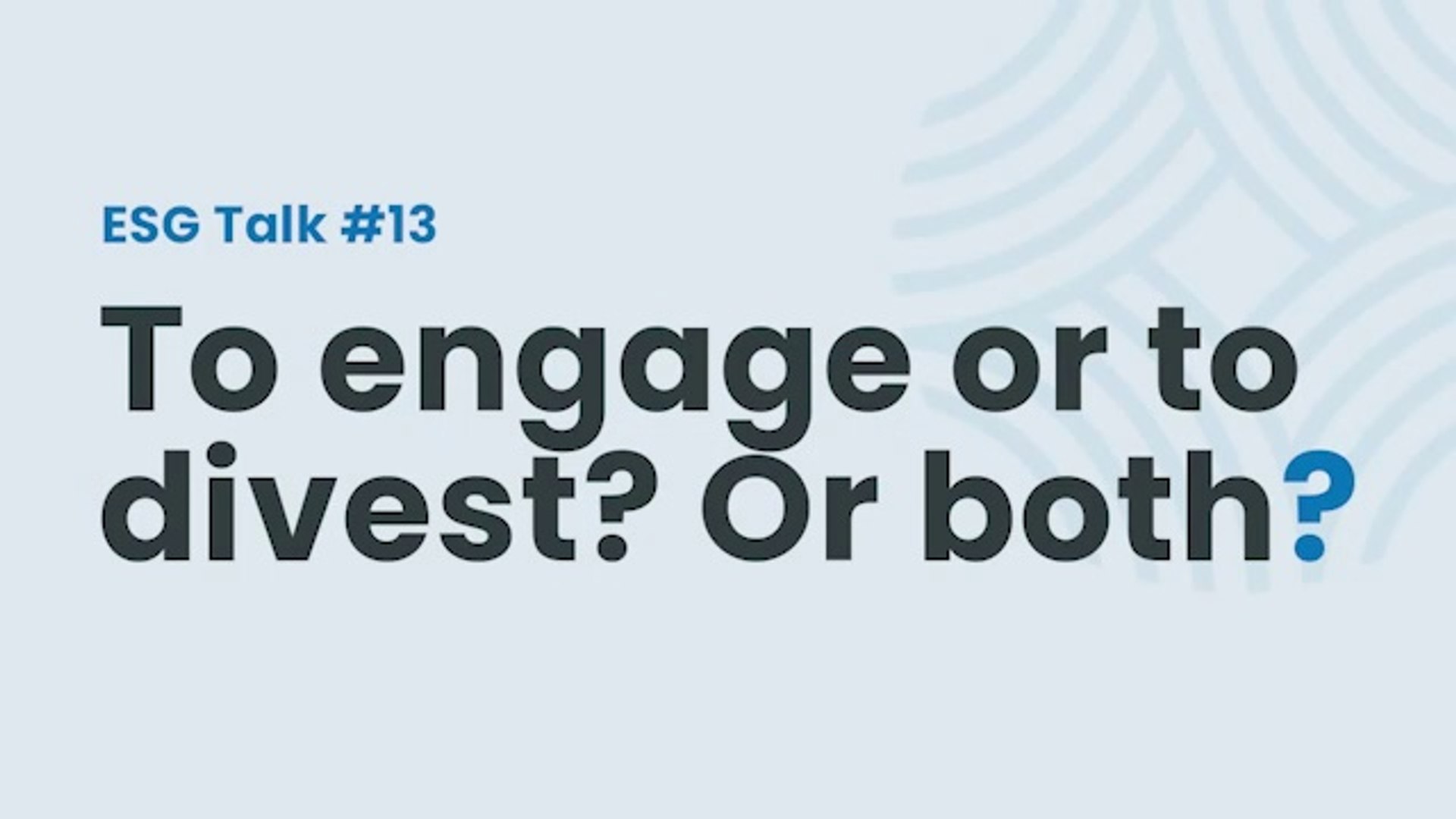
How can investors have a truly material impact in the fight for the climate? Is divestment the only solution, or does engagement offer an alternative approach for improving environmental practices? What are key factors for voting and dialogue campaigns to be effective?
Our round table will focus on the central role of voting and engagement in sustainable investing, with a particular focus on the climate crisis. Pierre Devichi, Head of Responsible Investment at ERAFP, Jeanne Martin, Head of Banking Programme at ShareAction, and Candriam’s Sophie Deleuze and Marie Niemczyk, respectively Lead ESG Analyst on Stewardship and Head of ESG Client Portfolio Management, will share asset owner, non-profit and asset manager perspectives on the roles, benefits and key success factors of dialogue with issuers and the exercise of voting rights.
Read More...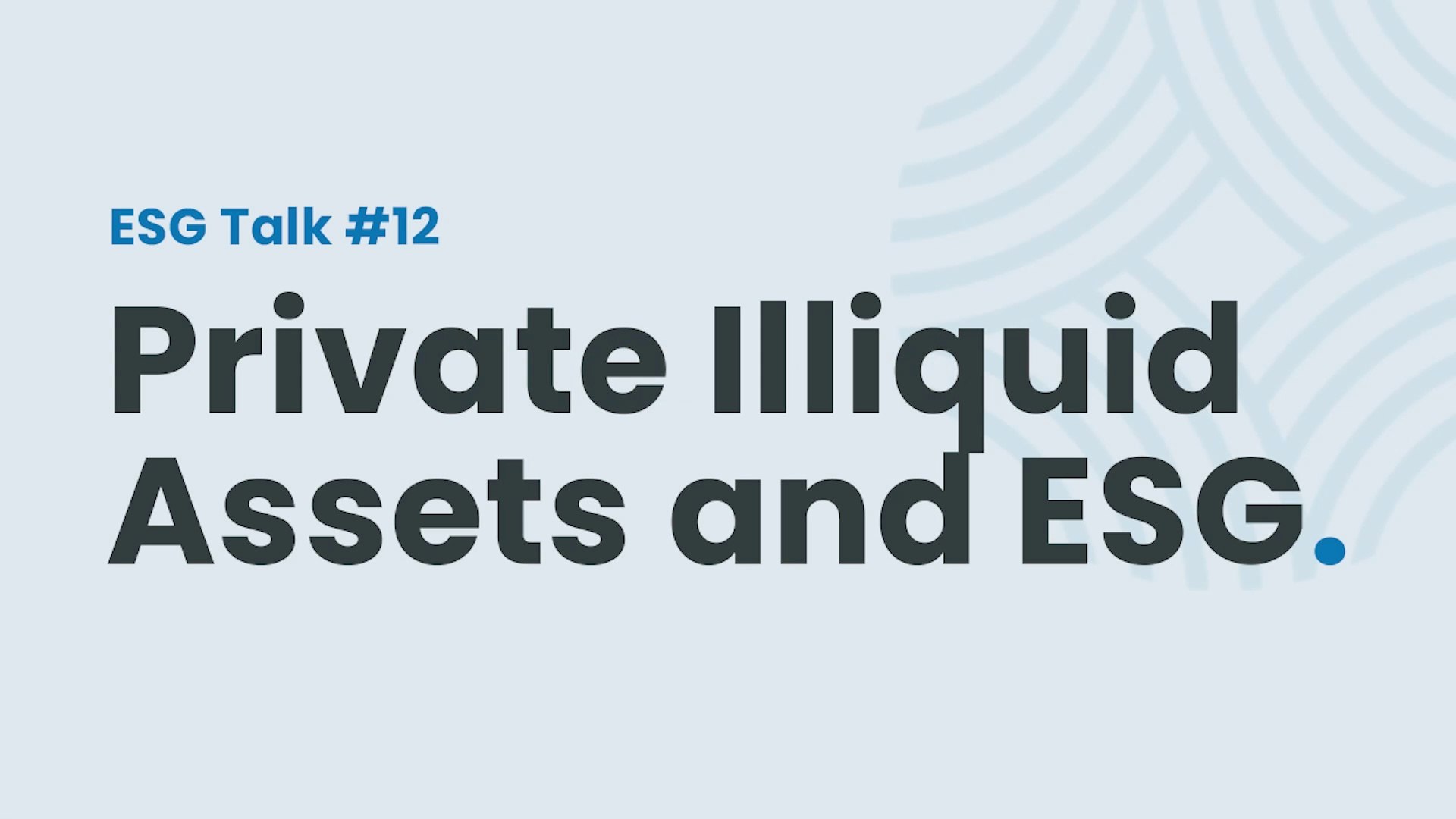
This ESG Talk examines how investors can successfully integrate the ESG dimension in regard to illiquid Private Assets, such as private equity, private debt, real estate or infrastructure.
We look at different ESG approaches that are used today and at important considerations that help to achieve successful outcomes. We identify some of the main challenges that investors may encounter.
Read More...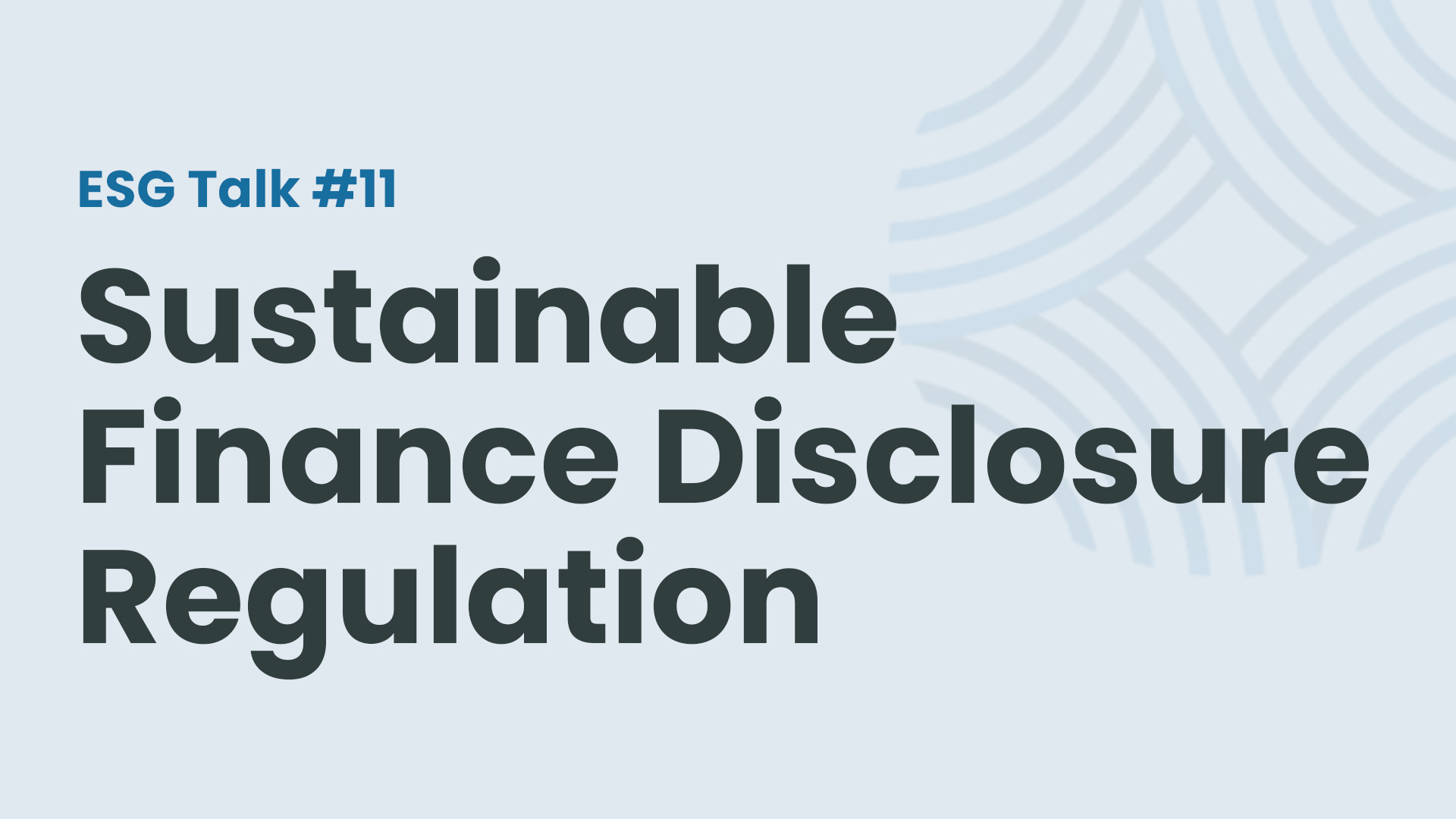
What changes have the new SFDR regulations
brought?
The run-up to the new year was pivotal for ESG, as market participants prepared for SFDR
Level 2 and engaged in broad public conversations about the deeper definitions of SFDR
Articles 9, 8, and 6 categories.
Candriam Academy organized an ESG Talk in the format of a roundtable including an EFAMA expert, Anyve Arakelijan, Vincent Triesschijn from ABN Amro, Guy Janssens from BNP Paribas Fortis and Candriam’s Marie Niemczyk. It offered a first look at how the new regulations which just came into effect on 1 January 2023 are impacting the strategies, approaches, processes, and operations of market participants. And, of course, what might be next…
Read More...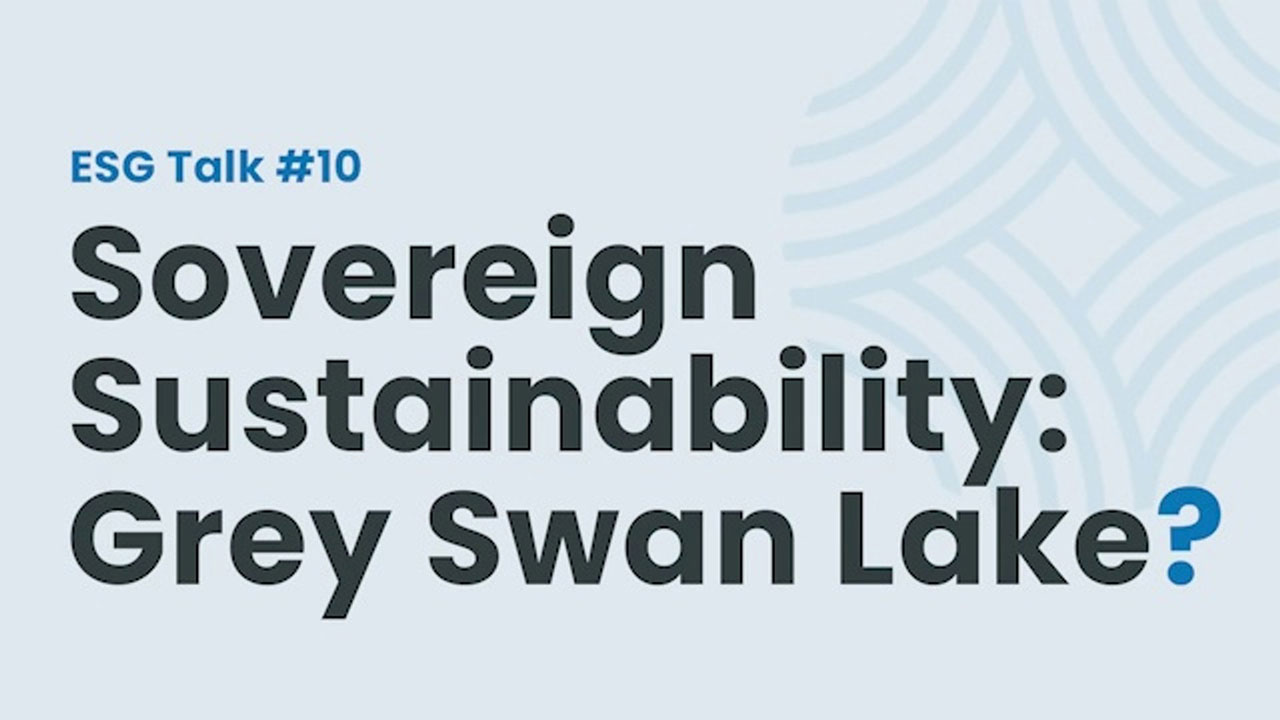
COVID-19’s economic impact showed how sustainability risks can materialize quickly, with grave consequences and without a warning. We are seeing more and more examples how they take center stage.
Geopolitical risks are no longer
about “quarrel[s] in a far away country, between people of whom we know nothing.” Russia’s
aggression threatens not only the security and economic prosperity of democratic Europe, but
also food and energy prices worldwide. While the impact of biodiversity loss is one of the
top three risks over the next 10 years.
Tune in to our ESG Talk to find out how sovereign investors can avoid being at
the mercy of grey swans:
• Why investors see so many grey swans and where do they come from?
• What sustainability indicators can point to risks before they materialize?
• Are some of them more important than others?
• How can sovereign sustainability models evaluate decisions taken by governments?
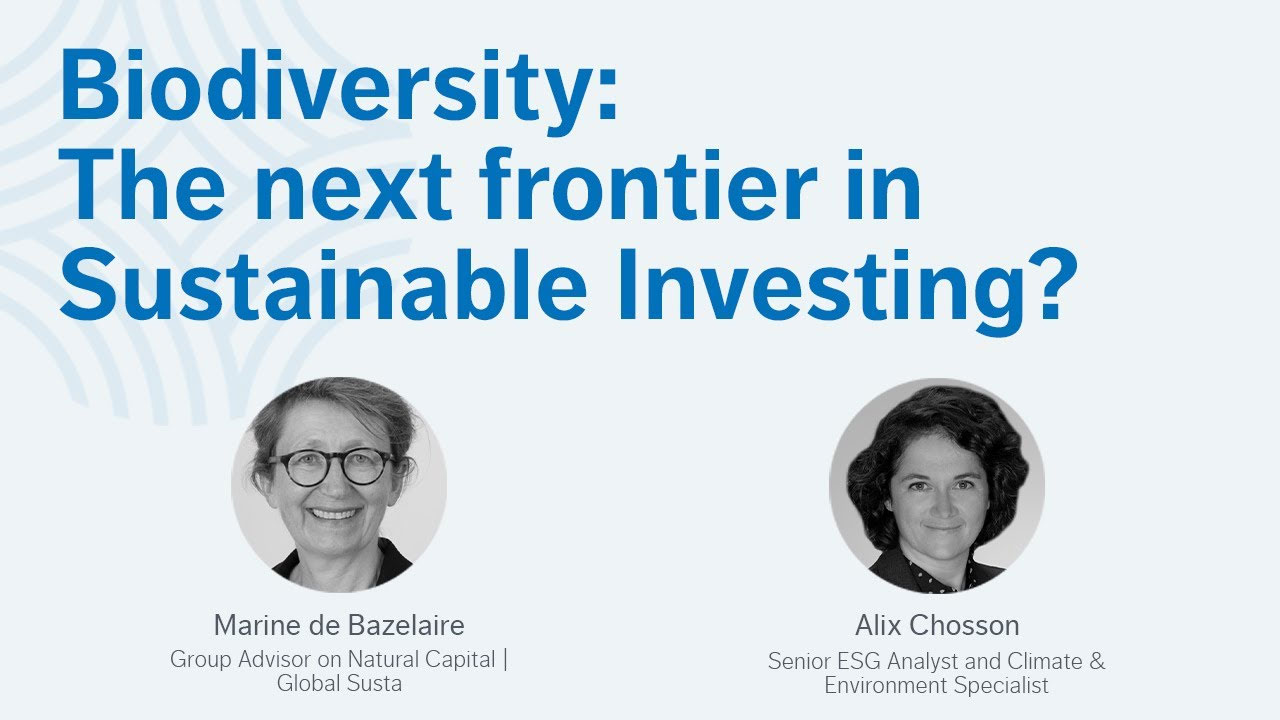
Biodiversity is the essential basis for the normal functioning of ecosystems, which provide humans with clean water, oxygen-rich air, and nutritious food. And while climate change has understandably been a priority concern for governments, a collapse in biodiversity is a closely related threat which can significantly amplify the destruction caused by global warming.
The big problem for the planet is
that today biodiversity – the variety of species of animals and plants on our planet – is
declining at a pace that is ten to a hundred times higher than was the case on average over
the past 10 million years. Apart from climate change, the main reasons for this decline are
habitat loss and fragmentation, invasive species, pollution and, of course, unsustainable
resource use. According to the World Wildlife Fund’s latest Living Planet Report, our
society’s current rate of consumption means that Earth’s biological resources are being
overused by at least 56%.
A growing number of institutional and long-term investors are searching for the
best approach to embed biodiversity consideration into financial decision-making, which is
also being encouraged by initiatives such as the Taskforce on Nature-related Financial
Disclosures (TNFD).
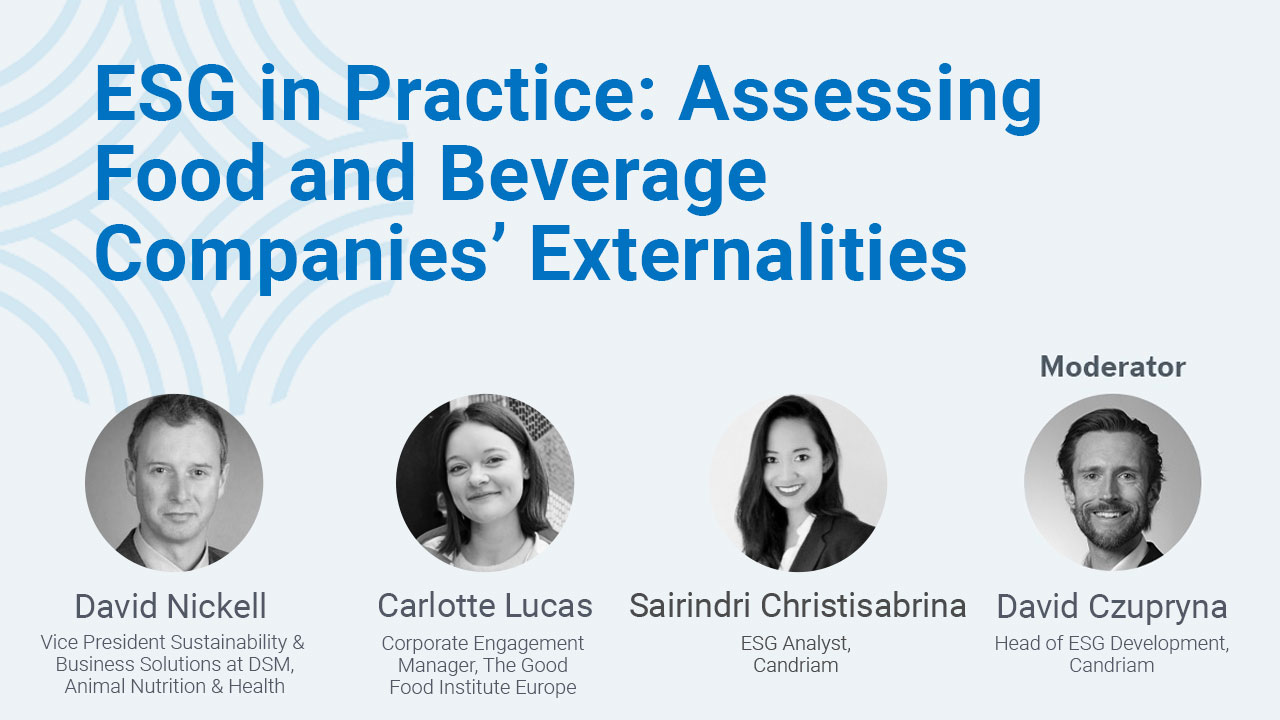
The food and beverage industry is at the crossroads of the most acute environmental challenges we face. Indeed, feeding 7.5 billion humans is intimately related to our relationship with biodiversity and ecosystems. It is one of the root causes for climate change, providing the main source for two of the top three greenhouse gases as well as emitting a relevant proportion of the third gas.
At the same time, food and beverage
companies are highly exposed to shifting consumer expectations. In particular, consumers
becoming increasingly aware of the environmental, social and health-related impacts of the
food they eat. These changes can lead to, or result from, new regulatory initiatives
targeting product contents, packaging, and production processes.
For all these reasons, the food and beverage sectors provide the ideal ground to
study how ESG investing is changing our perception of an important group of companies. We
will examine how they are responding to and anticipating new regulatory and consumer
pressure, and ultimately how they will become more sustainable whilst feeding, potentially,
10 billion humans by 2050.
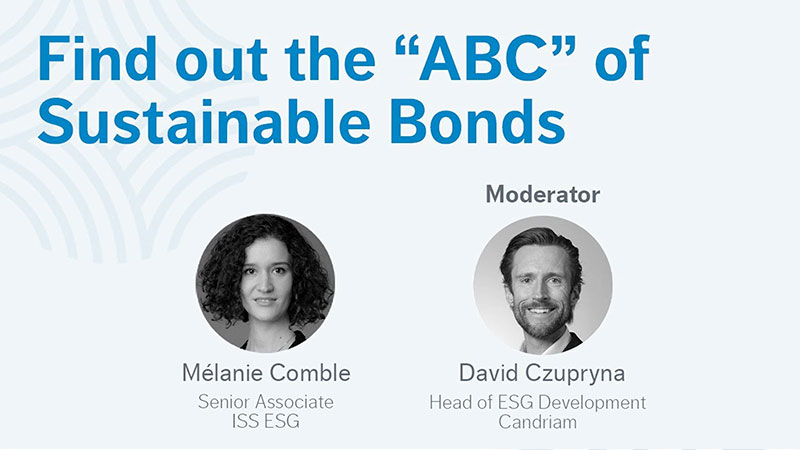
Considered marginal only a few years ago, Sustainable Bonds – raising funds for green or social projects, or the combination of the two – are now one of the biggest topics of discussion among bond issuers and investors alike.
While the sector still only represents a small slice of the bond market overall, it is quickly gaining ground, helped by the rapidly evolving policy around climate regulation, as well as the “Build back better” push through the COVID-19 recovery. A momentum that translates into figures: for the first time ever, issuances are expected to surpass USD 1 Trillion in 2021.
Read More...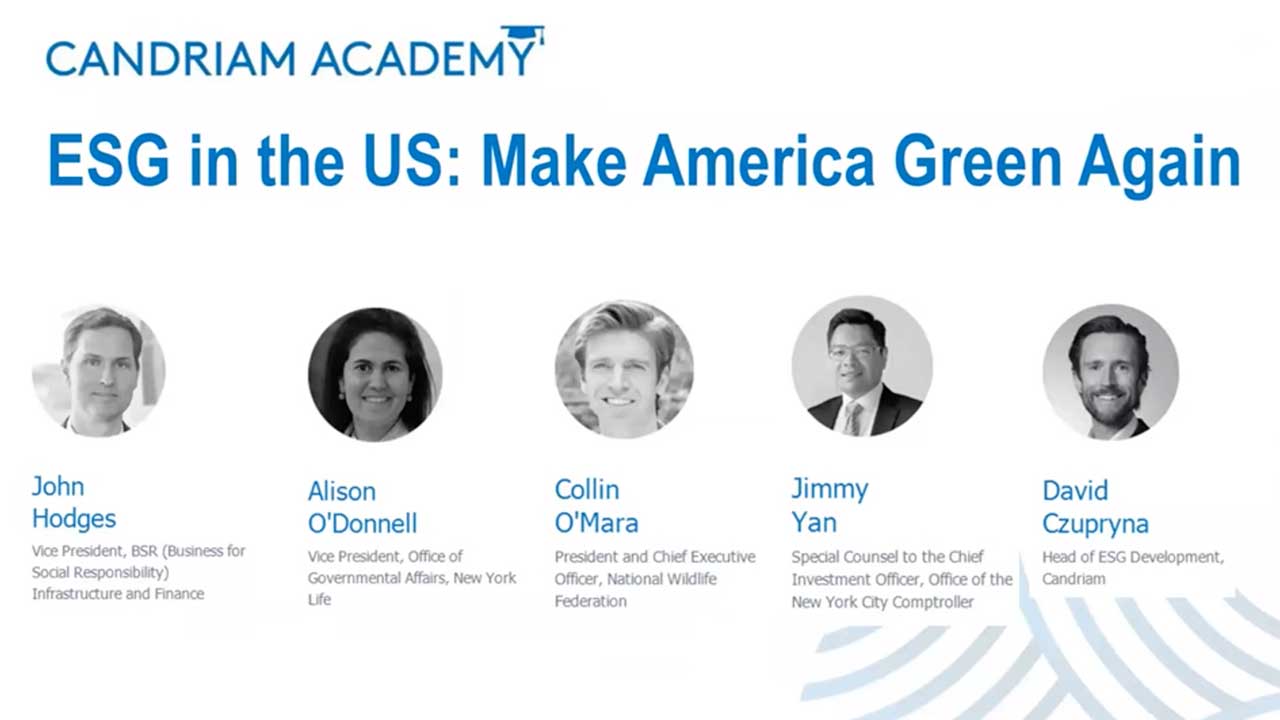
The election of Joe Biden has ushered a tide change in the US policy stance on ESG and climate change. America is back, sprinting to catch up with Europe and others, firming up its commitments on sustainability with numerous new ambitious plans and funding initiatives.
In this ESG Talk, we bring together experts in US regulatory affairs who have been closely following these developments from Capitol Hill and New York. Tune in as we discuss the details of this new exciting direction, as well as challenges faced by the new administration in Washington from within Capitol Hill and, perhaps more importantly, from some large states.
Read More...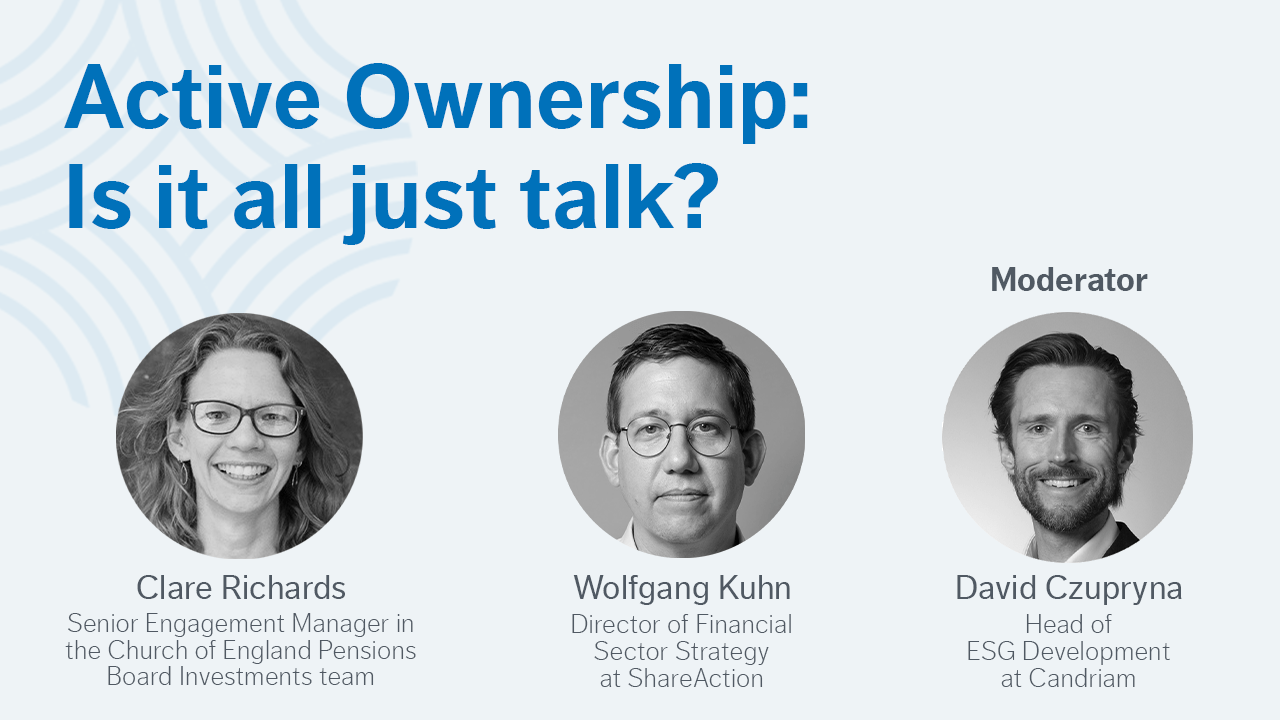
Shareholders own the firm. But are investors actually effective in creating greater sustainability in ‘their’ companies?
How does today’s Active Ownership differ from classical activism? Can investors become true partner with managements to create more sustainable companies? Seasoned engagement experts discuss the trends in stewardship and how the phrase ‘Active Investor’ has come to be almost synonymous with ‘Responsible Investor’.
Read More...
Over 80% of worldwide energy consumption still depends on fossil energy. All this while fossil energy sources are responsible for the majority of our greenhouse gas emissions. If we are to achieve the objectives of the Paris Agreement of keeping the global temperature rise this century to below 2⁰C compared to pre-industrial levels, it is imperative that we replace fossil fuels with alternatives.
What is the role of investors in redirecting capital towards companies that can help in this process of alignment with the Paris Agreement goals? How easy and straightforward is it to measure the so-called “carbon footprint” of an investment portfolio? And is a low-carbon portfolio automatically aligned to the Paris Agreement?
Read More...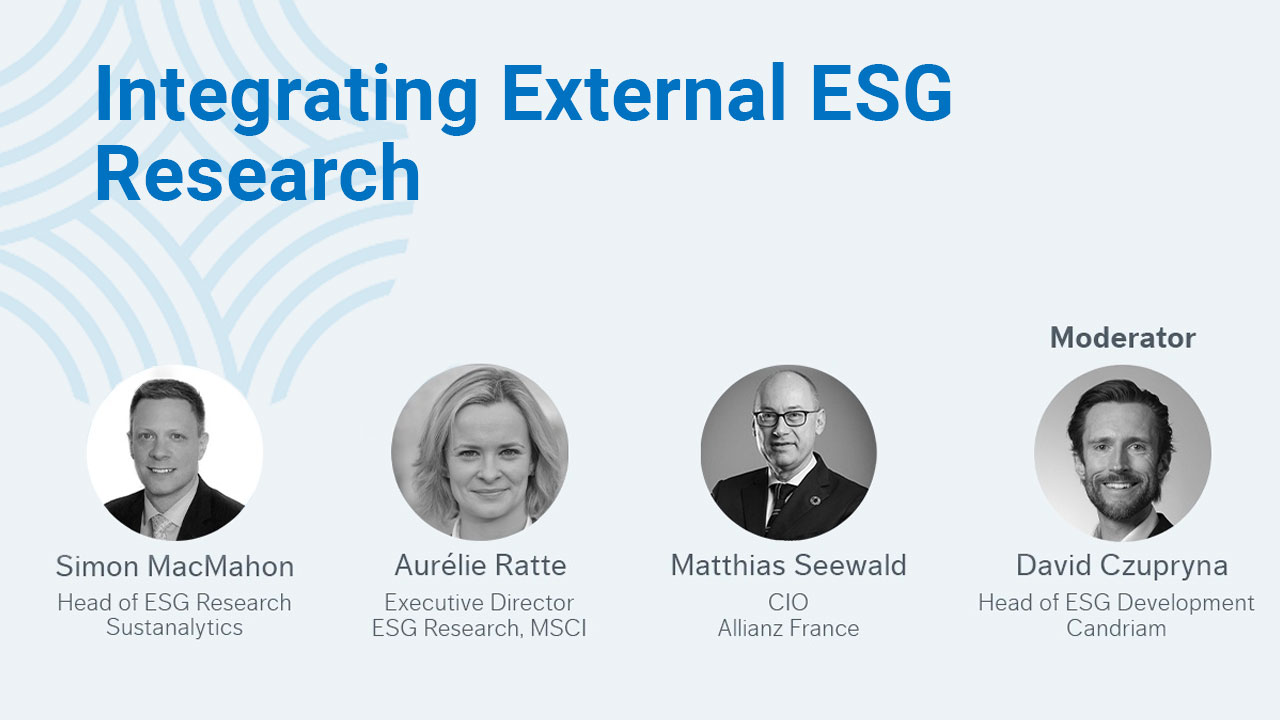
For many investors, ESG research providers are instrumental in making ESG investing happen. How do leading institutional investors use external ESG research? And, which strengths and weaknesses do they find in that research?
This video sheds some light on how
ESG research providers are able to deliver ESG ratings on thousands of companies, sometimes
on the basis of minimal company data. It highlights the choices that each rating agency has
to make to produce those ratings, and how these choices produce different ratings for the
same company, depending on the ESG research provider.
Finally, it explores what ESG data could look like a few years from now.
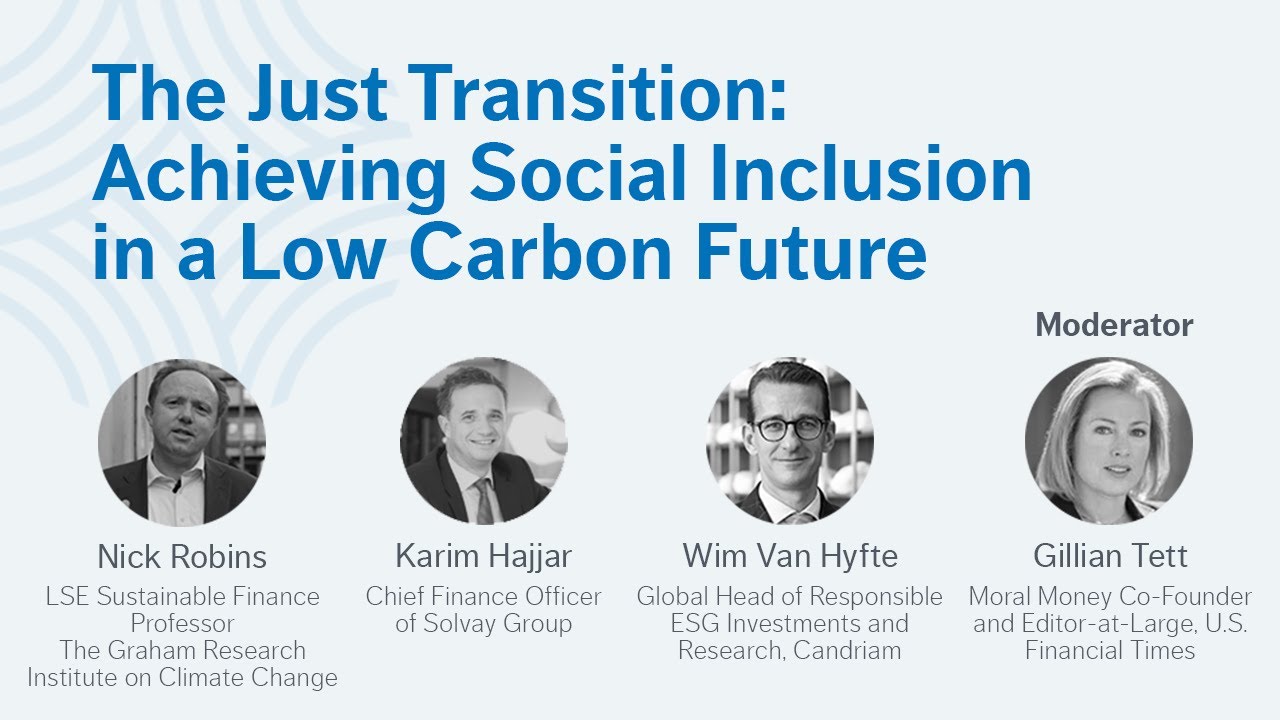
In this video, we explore the social impact of transitioning to a low carbon economy through a panel discussion featuring LSE Sustainable Finance Professor Nick Robins, Chief Finance Officer of Solvay Group Karim Hajjar, and CANDRIAM ESG Investment Specialist, Wim Van Hyfte.
Moderated by Gillian Tett, Moral Money Co-Founder and Editor-at-Large, U.S. Financial Times, the panel dives into the concept of Just Transition and the increasing importance of uniting the E & S of ESG in delivering Sustainable Development Goals (SDGs).
Read More...This is an online training course, and
registration is complimentary for financial advisors.
CE Credits Awarded for Course Completion (CFP / IWI / CFA)
With over $605 billion in Assets Under Management[1] as of September 30, 2020, New York Life Investments is comprised of the affiliated global asset management businesses of our parent company, New York Life Insurance Company (New York Life). We offer clients access to specialized, independent investment teams through our family of affiliated boutiques. We remain committed to our clients through a combination of the diverse perspectives of our boutiques and a long-lasting focus on sustainable relationships.
Our multi-boutique business model is built on the foundation of a long and stable history, which gives our clients proven performance managing risk through multiple economic cycles. With capabilities across virtually all asset classes, market segments, and geographies, our family of specialized, independent boutiques and investment teams allows us to deliver customized strategies and integrated solutions for every client need.
Our investment managers offer deep domain expertise and diversity of thought generating deeper insights alongside strong conviction to deliver better outcomes. Our global capabilities combined with local presence drives more nuanced perspective and a more personal experience for our clients.
[1] Assets under management includes the assets of the investment advisors affiliated with New York Life Insurance Company. AUM beginning in 2012 excludes Assets under Administration. AUM is reported in USD. AUM that are not denominated in USD are converted using spot rates as of the reporting date.
The products and services of New York Life Investments’ boutiques are not available to all clients and in all jurisdictions or regions.
Impact investing, and/or environmental, social, and governance (ESG), managers may take into consideration factors beyond traditional financial information to select securities, which could result in relative investment performance deviating from other strategies or broad market benchmarks, depending on whether such sectors or investments are in or out of favor in the market. Further, ESG strategies may rely on certain values based criteria to eliminate exposures found in similar strategies or broad market benchmarks, which could also result in relative investment performance deviating.
This material is provided for educational purposes only and should not be construed as investment advice or an offer to sell or the solicitation of offers to buy any security. Opinions expressed herein are current opinions as of the date appearing in this material only.
This material contains general information only and does not take into account an individual's financial circumstances. This information should not be relied upon as a primary basis for an investment decision. Rather, an assessment should be made as to whether the information is appropriate in individual circumstances and consideration should be given to talking to a financial advisor before making an investment decision.
To help you conveniently locate additional Internet resources of interest, this presentation may contain links to third party websites that New York Life Investments does not operate or control. The existence of such links does not indicate any approval or endorsement of, or any association with, the linked websites. Neither New York Life Investments, nor any of its affiliated websites, is responsible for the content or operation of any linked website. By clicking on any of the third-party website links, you agree to access and use the linked site at your own risk and according to its terms and conditions.
New York Life Investment Management LLC engages the services of federally registered advisors. Candriam Belgium is an affiliate of New York Life Insurance Company. Candriam is registered in the U.S. with the Securities and Exchange Commission, but not all of their products are available in the U.S.
“New York Life Investments” is both a service mark, and the common trade name, of certain investment advisors affiliated with New York Life Insurance Company.
SMRU Code: 1825949